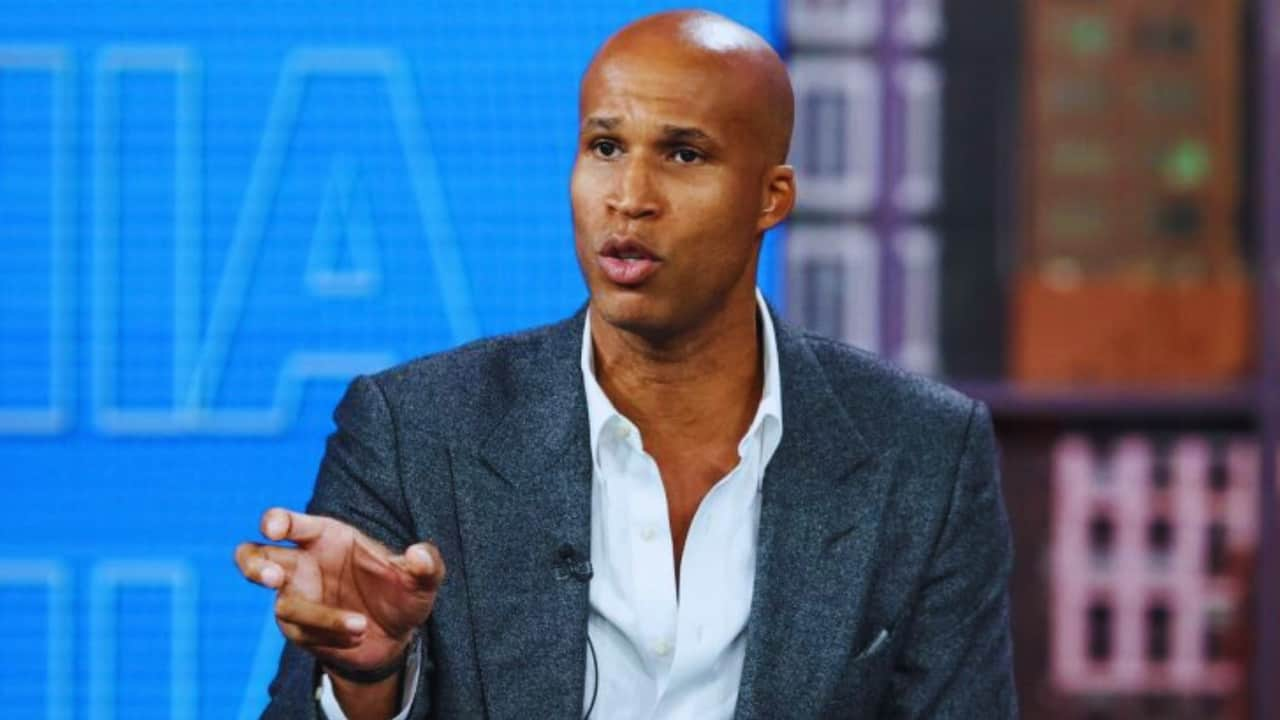ESPN’s Broadcasting Shuffle: Richard Jefferson Emerges as Frontrunner Amid Industry Shake-up
As a sports media reporter covering the latest developments in broadcasting, I can confirm that the NBA commentary landscape is experiencing significant changes. Richard Jefferson, the former NBA champion, stands at the forefront of these transformations.
ESPN’s upcoming decision for their premier NBA broadcast team has created buzz throughout the industry. Jefferson, who has steadily built his reputation since joining YES Network in 2018, appears to be leading the race to join the esteemed duo of Mike Breen and Doris Burke.
The network faces mounting pressure as new players enter the game. Amazon Prime Video and NBC are actively seeking top-tier talent, adding complexity to ESPN’s decision-making process. This competition has turned the broadcasting world into a high-stakes chess match.
Andrew Marchand, a respected voice in sports media, broke down the situation on his podcast. “Jefferson leads the pack, but ESPN might use this as a stepping stone,” he explains. “They’re keeping their options open for a bigger name down the road.”
Jefferson brings unique qualities to the table. Unlike his predecessor JJ Redick, he combines practical experience with a natural broadcasting style. His journey from NBA journeyman to commentator has equipped him with deep knowledge of current players and coaches. In the booth, Jefferson shows remarkable versatility – he can switch from light-hearted banter to serious analysis seamlessly.
The timing couldn’t be more crucial. With TNT losing its NBA package in 2025, a talent war looms on the horizon. Industry insiders suggest that heavyweights like Reggie Miller, Jamal Crawford, and Dwyane Wade might soon enter the conversation.
Jefferson’s potential deal could mirror Greg Olsen’s innovative contract structure. “He could push for a premium package,” Marchand suggests, “securing his position whether he lands the top spot or not.”
The shifting landscape reflects broader changes in sports broadcasting. Streaming giants are reshaping how we consume sports content, forcing traditional networks to adapt. ESPN’s careful approach to this decision shows they’re thinking long-term about their NBA coverage.
This story goes beyond just filling a broadcast position. It represents the evolving nature of sports media, where former players must now navigate complex industry dynamics. Jefferson’s journey from the court to the booth exemplifies this transformation.
ESPN plans to make their final decision in January 2025. Until then, Jefferson continues to impress audiences with his balanced approach to commentary. Whether calling games or providing studio analysis, he maintains the rare ability to educate and entertain simultaneously.
The next few months will prove decisive for Jefferson and ESPN. As streaming platforms strengthen their position and new opportunities emerge, the sports broadcasting landscape continues to evolve. One thing remains clear: whoever lands the coveted position will play a crucial role in shaping how future generations experience NBA basketball.
We’ll keep following this developing story as ESPN weighs its options and the industry prepares for what could be its most significant talent shuffle in recent memory.
